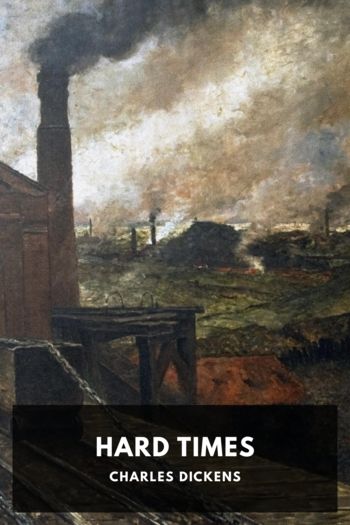Millennium Holland, Tom (read dune .TXT) 📖

Book online «Millennium Holland, Tom (read dune .TXT) 📖». Author Holland, Tom
And so it had — but not in the way that al-Mansur himself had intended. Appearances could be deceptive. In truth, it was not the kingdom of Le6n, nor any of the other Christian lordships left mangled by the long decades of jihad, that faced implosion. Rather, it was the Caliphate itself, which had seemed, under the leadership of al-Mansur, raised to such intimidating heights of glory as to put even the furthest reaches of infidel Spain in its shadow, that was teetering on the edge of ruin. Few, in the immediate wake of the great warlord’s death, would have suspected as much; but there were some, even back in the glory days of the Umayyads, who had sensed a rottenness in al-Andalus, and feared where it might end. One of them, ironically enough, had been al-Mansur himself. As a youthful and talented player in the often deadly game of harem politics, he had been granted plentiful opportunities to study at close hand the functioning of al-Hakam’s regime - and to mark just how dependent it had become for its muscle on foreigners. As in the days of Abbot John’s visit to Cordoba, most of these were slaves, transported to al-Andalus from the far-off lands of the Slavs - but some were mercenaries, Muslim Berbers from Morocco. Al- Mansur had come to know the quality of these men well: for early in his career he had served among them in North Africa. Stern in the practice of their religion, and ‘famed for their exploits, qualities and valour in the face of the Christians’,” the Berbers had seemed to the young officer everything that his compatriots were not: warriors ideally suited to keeping an ambitious jihadi in power. And so it had proved. Al-Mansur’s reign had witnessed a prodigious influx of Berber war bands into al-Andalus. By the time of his death, they were to be found billeted across the Caliphate, loathed and feared in equal measure by the natives. Naturally enough, as the tax rate spiralled ever upwards, so the resentment of the Andalusis at being obliged to fund the promotion of immigrants – of savages! – over their own heads had grown increasingly sulphurous. In Cordoba especially, the great maze of streets had begun to seethe with ethnic hatreds. The capital had been transformed into a kindling box.
This was an alarming inheritance, certainly, for any ruler to come into. For six years, however, al-Mansur’s eldest son, a jihad-seasoned alcoholic by the name of Abd al-Malik, succeeded, despite his most un-Islamic enthusiasm for the bottle, in maintaining his dynasty’s grip on both Cordoba and al-Andalus. Rather than flaunt his power, he did as his father had done, and paid dutiful lip service to Hisham II; rather than parade his dependence on the Berbers, he sought to veil it. When he too died, however, and was succeeded by his brother, the son of a Christian concubine known to the Cordobans by the derisive nickname of ‘Sanchuelo’, both policies were flung out of the window. Subtlety was not the new regent’s forte. First, he leaned on the wretched Hisham to appoint him the formal heir to the throne of the Caliphate; then, just for good measure, he ordered everyone at court to start wearing a Berber style of turban. As Sanchuclo set off northwards on the obligatory campaign of jihad, he left behind him a capital that was smouldering. At the news that he had crossed the frontier, it exploded into flames.
The spark that lit the conflagration had been struck by an Umayyad fugitive, Muhammed bin Hisham. Sneaking back into Cordoba, he had succeeded in rallying the disinherited members of his clan to his cause – and now, with Sanchuelo far distant in the lands of the infidel, he deposed the feeble Hisham II and took his place upon the throne. News of the coup was greeted ecstatically by the Cordobans, who set about celebrating it with a delirious orgy of theft and violence. The slums emptied as the palaces built by al-Mansur and his two sons were systematically trashed. ‘Such was the sacking,’ one historian recorded, ‘that even the doors and beams disappeared.’ The new Caliph, far from attempting to restrain the rioters, encouraged them all he could. This was the measure of his authority: it depended on a lynch mob. As did his justice. Staking out Sanchuelo’s harem, the new Commander of the Faithful cherry-picked the most beautiful women, raped some of the others and shared out the remainder among his henchmen. Learning that Sanchuelo himself had been abandoned by his army and assassinated, he ordered the corpse brought back to Cordoba and stuck up on a gibbet. Seeking to raze the principal buttress of the toppled regime, and ingratiate himself with the anti-immigrant Cordobans, he placed a bounty on the head of every Berber.
‘And slay them wherever ye catch them, and turn them out from where they have turned you out; for tumult and oppression are worse than slaughter.’ The Cordobans, who had long felt that the ‘tumult and oppression’ of the hated Berbers more than qualified them to be slaughtered, now set to obeying the Prophet’s injunction with a sanguinary literalness. As black smoke rose above the immense city, so mobs began to gather once again, pillaging Berber barracks and homes, and hunting





Comments (0)